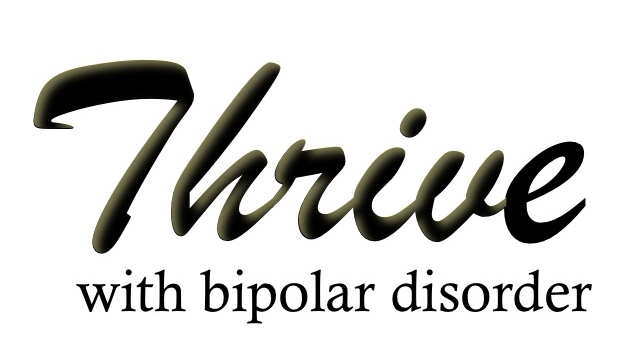People’s responses to how identity can be rebuilt after it crumbles away
 So many people living with bipolar disorder have shared with me the pain of experiencing everything they know about themselves crumble away.
So many people living with bipolar disorder have shared with me the pain of experiencing everything they know about themselves crumble away.
For some the crumbling happens in the experience of mania and depression. For others the loss of identity occurs when medication begins to work.
Here are some questions that revealed lessons learned from identity crumbling away. This is based on responses from people thriving with bipolar disorder:
What part(s) of yourself do you feel you lost?
- “I no longer feel like myself. I see myself as a stranger.”
- “I lost things that I knew that were true about myself. I am not who I believed myself to be.”
- “My personality. My personality is different because of the medication. My personality is different because of mania. It is different because of depression. I don’t know what my personality is anymore.”
- “My profession. I can’t do what I love to do.”
- “I don’t think and feel the way I used to be able to think and feel.”
- “My dignity and integrity.”
- “I am afraid of myself.”
- “Trust for myself.”
- “I’m not the person people expect me to be anymore.”
- “I hurt people. I now know how deeply I can hurt.”
How did you initially respond to losing these parts of your identity?
- “I gave up. I didn’t have a reason to try.”
- “I rejected the good things people said about me.”
- “I was scared of myself and what I could be.”
- “I was confused. I didn’t believe anything about myself was real.”
- “I didn’t trust anyone, including myself.”
- “I got angry. I felt powerless.”
- “I didn’t want to be around anyone. I isolated myself.”
- “I wanted off of medications. I didn’t want to be “better”, I wanted to be comfortable.”
What insight or experience did you have that changed your response to this loss?
- “My psychiatrist shared with me everything that I wouldn’t be able to be in life. He listed all of the professions and roles I would never be able to have because he said that I can’t handle stress. He said I wouldn’t be able to go to college, shouldn’t have children, and will find romantic relationships to be very difficult for me…..My response to all of this in my mind was “F*** YOU! I’ll prove you wrong.” That experience completely changed me.” (This particular story is Robin Mohilner’s)
- “I realized that I cared far more about what other people thought about me than caring about who I want to be. When I put effort into who I want to be, it changed my life.”
- “My family believed in me. They trusted me when I couldn’t trust myself. They forgave me for the hurt I caused them. It gave me hope.”
- “Just because my personality changed it doesn’t mean that my character changed. It doesn’t mean how I treat people changed. And just because I did some horrible things that I never thought were possible for me to do, it doesn’t erase all the years of good things about me.”
What helped you build your identity?
- “I stopped trying to fit in and be like everyone else. It was very clear to me that I was not what people traditionally call “normal”. I couldn’t be normal no matter how hard I tried. So I gave myself permission to not have to be that way. I allowed myself to like myself anyways.”
- “I tried to always do my best, to think my highest thoughts and separate drama from my feelings. Doing this gave me a place to stand.”
- “Therapy. My relationship with my therapist helped me and challenged me to trust myself. I became aware of my own strengths, abilities, resources and limitations. I set reasonable goals and achieved them. That helped me begin to trust myself.”
- “I educated myself. I did not rely on my doctors or professionals to know everything there is to know about bipolar disorder. I learned any and everything I could about bipolar disorder from as many places as possible.”
- “I defined what bipolar disorder would be in my life. I chose for it to be a gift. I realized that it doesn’t have to define who I am, but it does affect me. I learned about what makes me vulnerable to an episode and it gave me a sense of power because this knowledge gave me control.”
- “My belief system. I focused on exploring values and beliefs and choosing which ones fit me. It opened space for spirituality in my life.”


i need al d detalis about personality in rebulit